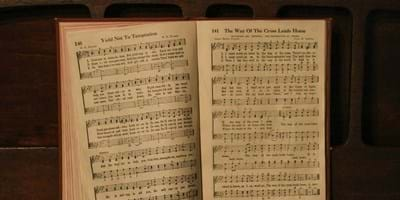Many people, after much searching, have concluded that there is no ultimate meaning to life. The consequence of this assumption can be depression and a lack of joy.
The book of Ecclesiastes is a particularly fascinating read as it chronicles the search of one man and details his conclusions. The lessons that he learnt are valuable for each one of us.
King Solomon had a very privileged life. God had blessed him with a great position and unsurpassed wealth. Although he started his reign exhibiting great faith in God there was a stark turning away from following the LORD and the chronicle of his joyless journey, until he reached his conclusion, is truly enlightening.
Ecclesiastes opens with a statement that many people, as they consider life on earth, have repeated.
"Vanity of vanities, all is vanity" (Ecclesiastes 1:2b).
This statement was made as he considered a life without reference to God. Even though he had tried all the pleasures of life, Solomon had come to the rather depressing conclusion that life without God is fleeting, and there is just a continual, monotonous cycle.
“All the rivers run into the sea, yet the sea is not full; to the place from which the rivers come, there they return again” (Ecclesiastes 1:7).
Solomon tried everything to find satisfaction and joy. Unlike most of us he had access to great wealth and could try all that he wanted without any cost restrictions. So, he immersed himself in his investigation.
In chapter 2 he details the various avenues he pursued in the quest to find pleasure in life. The modern reader will notice that these paths are still being followed some 3,000 years later.
Laughter (vv.1-2) – Virtually everyone likes to laugh. Friends remember with fondness the times when they have laughed together, and the ability to “laugh at yourself” is an admirable quality. Highly paid comedians are evidence of a culture that likes to laugh but the laughs do not last. When the realities of life hit hard, we can echo Solomon’s word “What use is it?” An endless pursuit of laughter will be frustrating and fruitless.
“Even in laughter the heart may sorrow, And the end of mirth may be grief” (Proverbs 14:13).
Wine (v.3) – Alcohol is seen by millions of people as a great satisfier. Most social occasions, in our country, are marked with the consumption of alcohol. When alcohol is drunk people lose inhibitions and life momentarily seems less complicated and somewhat carefree. Whilst retaining wisdom, Solomon tried the pleasures of alcohol, and found that it was not the answer to his search.
Property (vv.4-6) – Property shows on TV illustrate that many people desire a bigger and better house. They stir up an unhealthy appetite and the result is a great desire for more. The latest gadgets and next home improvement are high on the agenda of those who seek ultimate satisfaction by the size and state of their house. Solomon, the richest man on earth at the time, was not satisfied with all that he owned, and unsurprisingly we too will join him if we try to find real purpose in material things.
Servants (v.7) – How would you like to employ enough people so that you no longer have to work and every whim of yours can be catered for by others? It seems idyllic to consider that your mundane tasks will always be completed by others, Having servants “at your beck and call” seems to be the preserve of the fabulously wealthy, something that the ordinary man cannot aspire to. However, Solomon informs us that this is “vanity”.
Money (v.8) – Surely having enough money so you can live how you want and have what you want is the answer? This is the great dream for many. Whilst no one should deny that having money does help a person not only to live but also to enjoy life, it is striking that often the most lonely and unhappy people are those that are wealthy. Solomon would testify that acquiring riches is not the answer to the search for purpose.
Many women (v.8) – Solomon had 300 concubines (women who were not married to him but with whom he had sexual relationships). Although sex is a good gift designed and defined by God for one man and one woman within a marriage relationship it continues to be used outside the boundaries of its design. Solomon’s accumulation of mistresses from a wide range of countries in the pursuit of lasting satisfaction through sexual relationships did not work for him and never will for those who follow that route.
Nearly all the things that Solomon tried are good gifts that can be enjoyed in their proper context but in themselves they do not answer the big questions about meaning and purpose. Life in and of itself cannot answer these questions we all have.
So what do Solomon’s investigations teach us? The answer is found at the end of chapter 2. The purpose of life, for each one of us, cannot be found in the things of this world. All the good things we have must be acknowledged and received, as a gift from God. Even the ability to enjoy them and find satisfaction in them is a gift from Him (2:25).
Who receives the gift of enjoying what God has given him? The enjoyment of one’s labours and their fruits are based on whether a man is pleasing to God or is a sinner.
“For God gives wisdom and knowledge and joy to a man who is good in His sight; but to the sinner He gives the work of gathering and collecting, that he may give to him who is good before God. This also is vanity and grasping for the wind” (Ecclesiastes 2:26).
Those who fear God and seek to live in accordance with His will have the reward of wisdom, knowledge and joy, enabling them to see the good gifts as what they truly are . They are not the way to meaning and purpose but come from the One who gives meaning, purpose, and value to all who fear Him.
It is God’s desire that all the good things of life be enjoyed by man but this, says Solomon, is only possible if you understand that enjoyment does not come from things but from God.
The conclusion of Solomon is echoed by Paul when he wrote to Timothy.
“Command those who are rich in this present age not to be haughty, nor to trust in uncertain riches but in the living God, who gives us richly all things to enjoy” (1 Timothy 6:17).
The question we all need to answer is, “Where are we looking for true meaning and joy? Is it in the good gifts or the giver of good gifts?” Solomon realised he had turned from God and was searching in the wrong places.
































